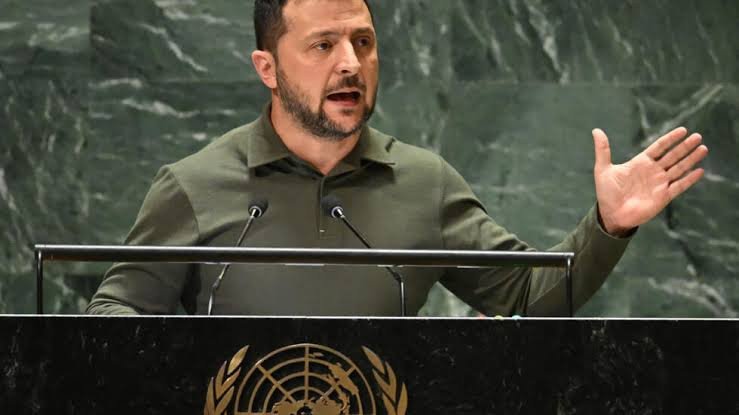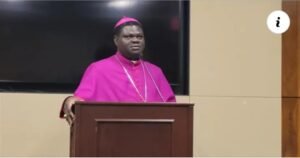UN diplomatic showdown: Zelensky confronts Russia in person amidst war

In a highly anticipated diplomatic showdown at the United Nations, Ukraine’s President Volodymyr Zelensky has come face to face with Russian officials for the first time since Russia’s invasion of his country.
The UN Security Council convened on Wednesday for a session expected to be laden with tension and potential drama.
Zelensky’s presence in New York for the annual UN General Assembly was marked by his distinctive military fatigues, symbolizing Ukraine’s resilience in the face of aggression. On Tuesday, he delivered a passionate speech, urging the international community to stand resolute against Russia’s actions.
The focal point of this diplomatic encounter is the special session on the war held at the powerful Security Council, where Russia holds a permanent membership with veto power over decisions. Russian Foreign Minister Sergei Lavrov arrived in New York late Tuesday, taking a circuitous route to avoid European airspace. Whether Lavrov will attend the Security Council session and engage with Zelensky remains uncertain.
Marti Flacks, an expert at the Center for Strategic and International Studies, noted that this potential showdown “could create one of those iconic UN moments.”
Joining the fray are representatives of two other permanent Security Council members: the United States, represented by Secretary of State Antony Blinken, and France, represented by Foreign Minister Catherine Colonna. Albania, a staunch supporter of Ukraine and the current president of the Security Council, has allocated speaking slots to a significant 60 representatives, as indicated by an agenda seen by AFP.
This encounter represents the most direct diplomatic engagement between Russia and Ukraine since Moscow’s invasion in February 2022. Notably absent from the UN proceedings this year is Russian President Vladimir Putin, who has refrained from attending high-profile diplomatic gatherings. Western nations seek to isolate him, and he faces an arrest warrant from the International Criminal Court.
In his address to the General Assembly, Zelensky accused Russia of committing “genocide” through its deportations of Ukrainian children. He emphasized that the war affects the world’s interests, alleging that Russia is “weaponizing” food and energy resources, including the halting of a UN-backed arrangement allowing Ukraine to safely ship grain through the Black Sea.
While Zelensky’s speech garnered applause from Western nations, there were many empty seats elsewhere. U.S. President Joe Biden, in his own address, cautioned against growing weary of supporting Ukraine, emphasizing that allowing Ukraine to be divided could jeopardize the independence of nations worldwide.
German Chancellor Olaf Scholz acknowledged the unbearable consequences of the war but warned against accepting peace proposals that merely serve Russia’s interests. He stressed that Russia bears responsibility for the conflict and possesses the power to end it.
However, not all nations share the same level of attention for Ukraine. Some developing nations have criticized the disproportionate focus on Ukraine, which has received substantial military aid, including $43 billion from the United States alone. South African President Cyril Ramaphosa expressed his concern about the global community’s ability to allocate resources for war while basic needs of billions remain unmet.







